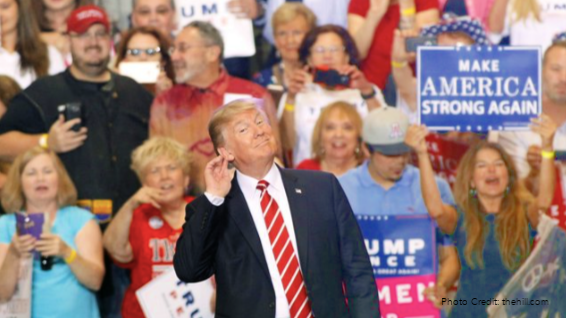As I think back on my time sitting behind my desk in the classroom, I don’t remember any of my high school teachers expressing political views. As the son of immigrant parents who did not have the right to vote, and therefore forwent the responsibility of teaching me the importance of voting, I frankly didn’t care about my teachers’ political views. I never asked my teachers about their political stance on social issues, so my teachers were, at best, neutral in their portrayal of politics in the classroom. At worst, they pushed politics out of the classroom, failing to expose us to the injustices experienced in this country.
I now find myself on the other side of the pupils’ desk, teaching students from Richmond who have experienced first-hand the fear and frustration that the Trump administration has produced amongst most people of color in and out of the United States. I teach students who are upset at Brett Kavanaugh’s confirmation to the Supreme Court, students who are confused and conflicted by Kanye West’s rants and dumbfounding support for a president who inarguably represents hate, misogyny, racism, and division. Am I expected to remain politically neutral in my classroom during such a polarizing moment in history?
I am a firm believer that my job as an educator is to expose students to new and challenging ideas, not to indoctrinate them with any particular ideologies. I do not believe that my own political ideals are a “one size fits all” remedy for our domestic and international issues. My political stance on social issues have been shaped by my subjective experiences, so by default, I expect everyone’s political ideals to differ on from the other just as their experiences differ. However, I believe that there are certain universal principles that should underlie all political ideals: love, respect, tolerance, diversity, and unity. This should be true for Republicans, Democrats, Independents, and any other party seeking national leadership.
The fact of the matter is that today’s politics do not have as their basis a sense of any of the universal principles mentioned above, and though students should learn to listen to both sides, the current administration does not represent any political ideology; it represents the worst aspects of human nature. I fear that my students will grow into young men and women who believe that all that Trump represents is genuine politics, because it is not. Our current politics are a farce, a masqueraded sense of hate and division that can fool anyone into thinking that what we’ve seen from the Capitol over the last couple of years is the real deal. So, I ask once more, am I truly expected to remain politically neutral in my classroom during a time when genuine politics are being misrepresented by our current administration?
Robel Espino
Latest posts by Robel Espino (see all)
- Parte 2, Explorando las Ideas de Jeffrey Duncan-Andrade: La Política y la Economía del Fracaso - December 18, 2019
- Part 2, Exploring Jeffrey Duncan-Andrade’s Ideas:The Politics and Economics of Failure - December 16, 2019
- Explorando Las Ideas de Jeffrey Duncan-Andrade, Parte 1: El Sistema de Educación Urbana, No Está Fallando - December 3, 2019
- Exploring Jeffrey Duncan-Andrade’s Ideas, Part 1: The Urban Education System Is Not Failing - November 26, 2019
- Estudio Sugiere Que las Lecturas en el Aula No Son Muy Efectivas, Pero Mis Alumnos y Yo las Amamos - November 22, 2019

